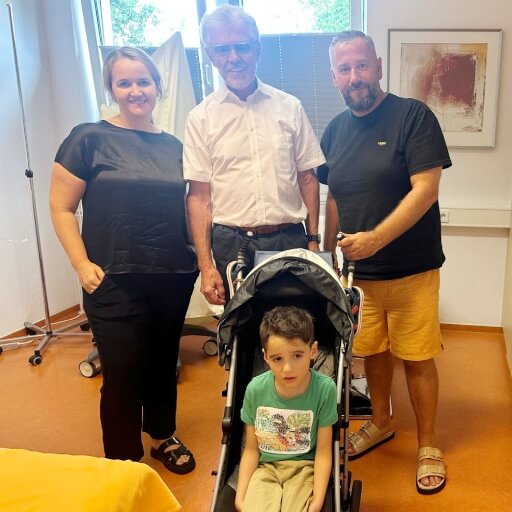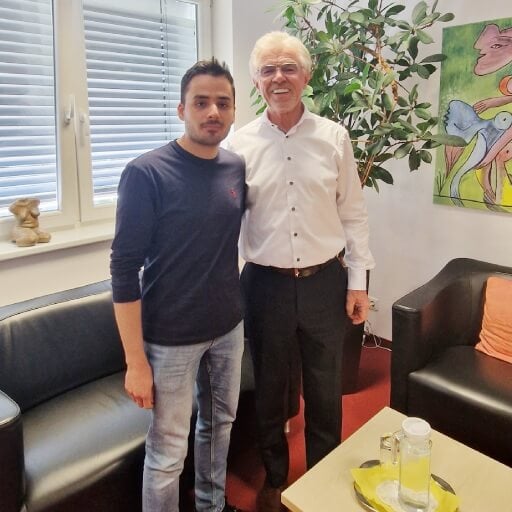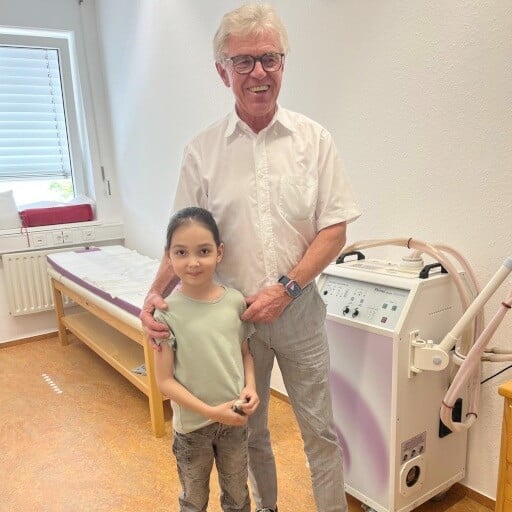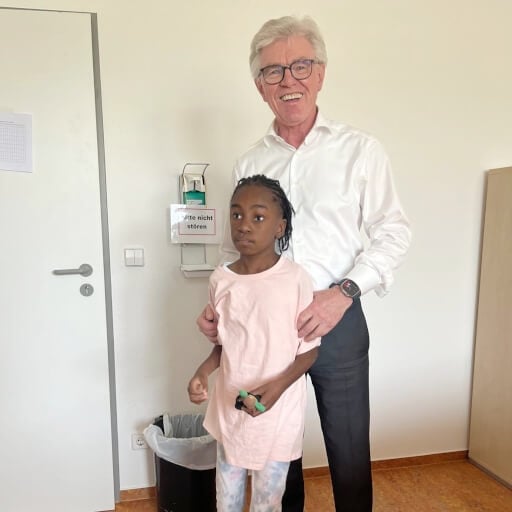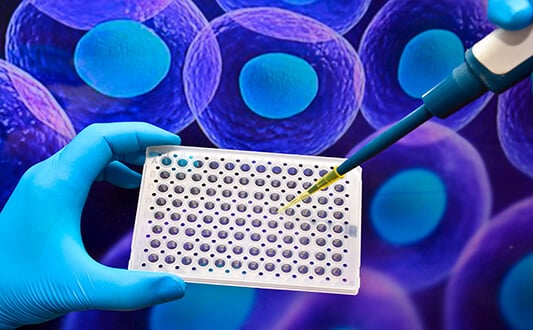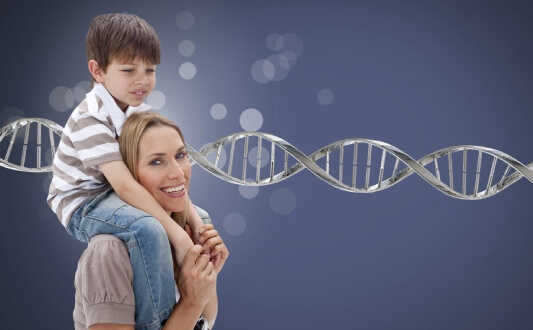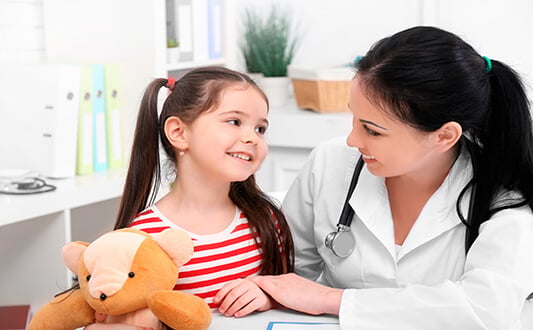Расстройство аутистического спектра (РАС) – это одно из самых сложных нарушений в области нейроразвития, с которыми сегодня сталкиваются семьи. Аутизм, поражающий примерно каждого 68-го ребенка в Соединенных Штатах, стал более распространенным диагнозом, чем рак, сахарный диабет и СПИД у детей вместе взятые [2]. Традиционные терапевтические методики, в частности поведенческая терапия, логопедическая терапия, эрготерапия и фармакотерапия, играют важную роль в качестве поддерживающего лечения, но, к сожалению, во многих случаях они не способны устранить основные нейробиологические нарушения, характерные для аутизма. Такое положение вещей побудило исследователей искать инновационные альтернативные подходы к лечению аутизма, которые могли бы воздействовать на глубинные патологические механизмы заболевания. Терапия стволовыми клетками при аутизме оказалась весьма многообещающим вариантом лечения, который теперь является основанием для надежды для семей в поисках комплексных решений для своих детей [3].
Информация об аутизме, которую должен знать каждый родитель
Расстройства аутистического спектра охватывают разнообразную группу нарушений нейроразвития, характеризующихся серьезными трудностями для ребенка в сфере социального взаимодействия и коммуникации, а также весьма ограниченными, повторяющимися моделями поведения, интересами или видами деятельности [4]. По своей природе расстройства аутического спектра могут проявляться совершенно разными симптомами и иметь различные степени тяжести [5].
Признаки аутизма обычно проявляются в раннем детстве и включают:
- Трудности с социальным взаимодействием и установлением зрительного контакта
- Сложности с коммуникацией и задержку речевого развития
- Повторяющиеся действия и движения (хлопанье руками, покачивание)
- Повышенную сенсорную чувствительность к свету, звуку или текстуре поверхностей
- Трудности с адаптацией к изменениям в распорядке дня
- Повышенный интерес к определенным темам или предметам
Развитие аутизма обусловлено сложным взаимодействием генетических, средовых и иммунологических факторов. По результатам исследований, в генетических детерминантах аутизма могут быть задействованы до 1000 потенциальных генов, многие из которых отвечают за важнейшие процессы организации и функционирования головного мозга, включая синаптогенез, метаболизм нейромедиаторов и функцию митохондрий [3].
Исследования продемонстрировали существенные изменения в ГАМК-ергических цепях, сопровождающиеся снижением уровня глутаминовой кислоты декарбоксилазы в теменной коре и мозжечке, а также изменениями в ГАМК-рецепторах. Эти изменения могут быть результатом обширных перестроек в иннервации ГАМК, потенциально снижающих порог судорожной готовности и объясняющих высокую коморбидность аутизма и эпилепсии [3].
Согласно одной из гипотез, развитие аутизма может быть связано с нейровоспалительными процессами, поскольку существует связь между активацией микроглии и нарушением иммунной регуляции. Данный воспалительный компонент обеспечивает чрезвычайно важную основу для понимания того, как лечение аутизма стволовыми клетками может влиять на эти патогенные механизмы посредством иммуномодулирующего и противовоспалительного действия.
Простое руководство по терапии стволовыми клетками для семей
Стволовые клетки – это удивительные биологические единицы, которые служат основой для регенерации и развития тканей. Эти уникальные клетки обладают двумя основными свойствами: способностью к самообновлению посредством деления и способностью дифференцироваться в специализированные типы клеток. По словам доктора Зибенхюнера, врача с более чем 40-летним опытом работы в медицине и почти 20-летним опытом в сфере проведения терапии стволовыми клетками: «Стволовые клетки обладают регенеративными свойствами. С их помощью можно восстановить ткани, утратившие свои нормальные функции».
Существует несколько источников получения стволовых клеток:
- Пуповинная кровь – забор производится неинвазивным способом сразу после родов и дает возможность получить различные популяции стволовых клеток
- Костный мозг – забор осуществляется хирургическим путем, этот источник богат мезенхимальными стволовыми клетками
- Жировая ткань – обильный источник, из которого можно получить до 500 миллионов стволовых клеток
- Периферическая кровь – содержит циркулирующие стволовые клетки, хотя и в более низкой концентрации по сравнению с другими источниками
Согласно утверждениям доктора Зибенхюнера, сейчас стволовые клетки все чаще получают из жировой ткани, поскольку «в организме человека присутствует значительное количество жировой ткани и, соответственно, в этой ткани также содержится множество стволовых клеток, а это означает, что их количество не ограничено, как, например, в костном мозге».
Лечение аутизма стволовыми клетками состоит из нескольких тщательно скоординированных этапов:
- День 1: комплексное диагностическое обследование и составление схемы лечения аутизма стволовыми клетками
- День 2: забор стволовых клеток из выбранного источника (костного мозга или жировой ткани)
- Обработка стволовых клеток в лабораторных условиях: клетки проверяются на наличие инфекционных заболеваний, а также оценивается их жизнеспособность
- Дни 4-5: пересадка полученных в ходе обработки в лабораторных условиях стволовых клеток для лечения аутизма с применением оптимального метода трансплантации
Введение стволовых клеток при аутизме с помощью внутривенной инъекции способствует их распределению по всему организму, в то время как при выполнении интратекальной инъекции они за счет циркуляции спинномозговой жидкости попадают непосредственно в центральную нервную систему.
Терапия стволовыми клетками имеет особенно обнадеживающий профиль безопасности, для ее проведения не требуется специальная подготовка, а также после лечения у ребенка не будет никаких ограничений. Доктор Зибенхюнер отмечает: «Противопоказаний к терапии стволовыми клетками нет, но все же есть определенные ограничения. Лечение следует начинать не ранее возраста 1-2 лет».
Терапия стволовыми клетками проводится амбулаторно, поэтому дети в большинстве случаев покидают клинику в тот же день, что способствует снижению стресса у родителей, при этом маленькому пациенту обеспечиваются высочайшие стандарты безопасности лечения. Доктор Зибенхюнер уверяет: «Врачи могут успешно применять методы классической медицины, дополняя их терапией стволовыми клетками». При таком подходе ребенок получает положительный результат от традиционных методов лечения, который дополнительно усиливается за счет регенеративного потенциала терапии стволовыми клетками.
Передовой опыт доктора Зибенхюнера в области терапии стволовыми клетками
Как терапия стволовыми клетками может помочь ребенку с аутизмом
Семьи, решившиеся на терапию с применением стволовых клеток для лечения аутизма у своих детей, отмечают значительные изменения в различных аспектах их развития и поведения. При этом наблюдается облегчение основных симптомов аутизма, а также решение части сопутствующих проблем, существенно влияющих на повседневную жизнь ребенка и его семьи.
В большинстве случаев у детей с аутизмом, прошедших лечение стволовыми клетками, отмечаются такие положительные изменения:
- Улучшение концентрации внимания – дети демонстрируют более высокую способность концентрироваться на заданиях и уроках
- Улучшение взаимодействия ребенка в социуме – отмечается более активное взаимодействие со сверстниками и членами семьи
- Улучшение коммуникативных навыков – наблюдается прогресс как в вербальной, так и в невербальной коммуникации
- Снижение выраженности стереотипного поведения – отмечается снижение частоты самостимулирующего поведения
- Улучшение когнитивных функций – у ребенка улучшается успеваемость в школе, особенно по математике
- Повышение физической активности – дети начинают проявлять повышенный интерес к играм на свежем воздухе и выполнению физических упражнений
Данные исследований также подтверждают клинические наблюдения, демонстрирующие объективно измеримые улучшения после терапии стволовыми клетками. Результаты лечения аутизма стволовыми клетками представлены в систематическом обзоре и метаанализе, опубликованных в научном журнале Frontiers in Pediatrics [1]. Исследование показало, что у маленьких пациентов, получавших терапию стволовыми клетки, были значительно более низкие баллы по рейтинговой шкале детского аутизма (CARS) по сравнению с контрольными группами, со средневзвешенной разницей -5,96 балла (95% CI [-8,87, -3,06]; p < 0,0001) – более низкие баллы по шкале CARS указывают на снижение тяжести аутизма, что свидетельствует о значимом улучшении клинического состояния ребенка.
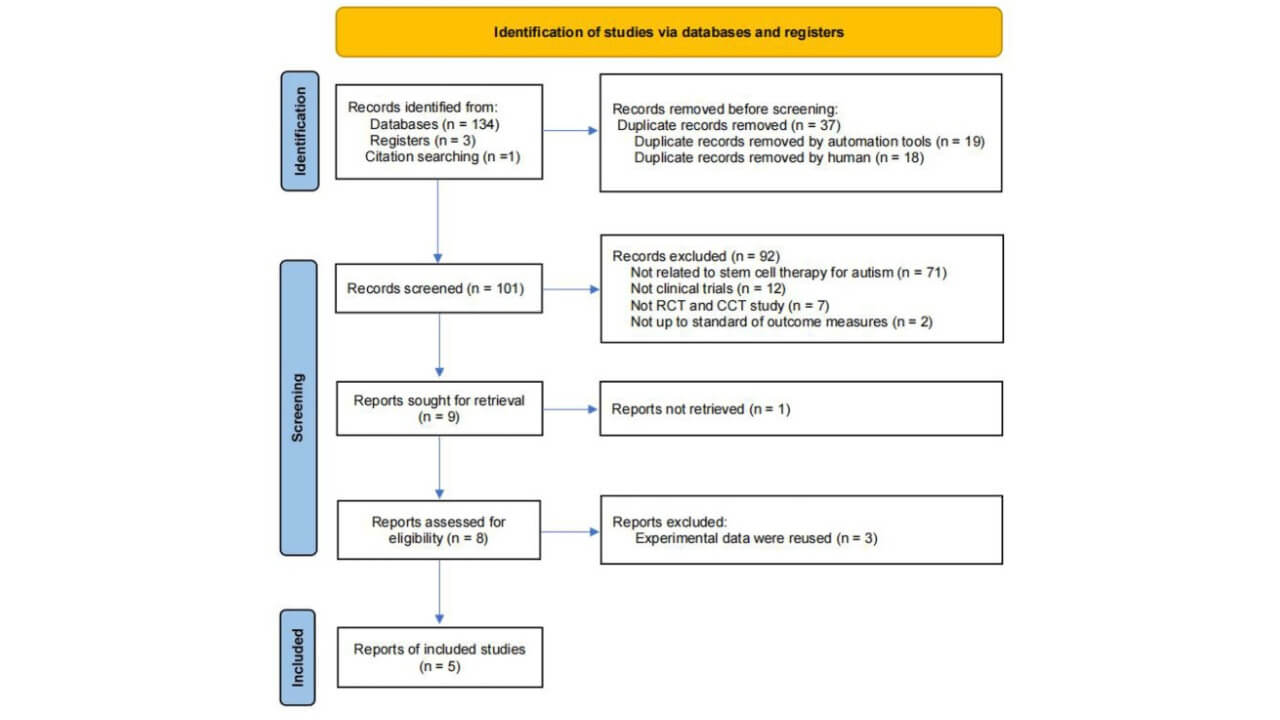
*PMCID: PMC9114801 [8]
Терапевтический эффект обусловлен способностью стволовых клеток воздействовать на глубинные нейробиологические механизмы, связанные с развитием аутизма. Механизм действия стволовых клеток основан на:
- Снижении выраженности воспалительного процесса – стволовые клетки секретируют противовоспалительные цитокины, способствующие подавлению нейровоспаления
- Восстановлении нейронных связей – стволовые клетки способствуют образованию новых синапсов и регулируют баланс нейромедиаторов
- Стимулировании ангиогенеза – образование новых кровеносных сосудов улучшает перфузию головного мозга и доставку кислорода
- Антиоксидантной активности – стволовые клетки способствуют снижению вредного окислительного стресса, который может повредить нервную ткань
- Модуляции иммунной системы – терапия стволовыми клетками способствует восстановлению сбалансированной иммунной функции
Стволовые клетки обладают удивительными регенеративными свойствами, что открывает перспективы для коррекции первичных неврологических нарушений при аутизме, а не только для симптоматического лечения. Именно за счет множественных механизмов действия данного терапевтического подхода семьи часто отмечают клинические улучшения у детей с расстройствами аутистического спектра, которые сохраняются в течение длительного времени без необходимости в постоянном медицинском вмешательстве.
Возможные сложности и побочные эффекты лечения
Лечение аутизма с применением стволовых клеток демонстрирует обнадеживающие результаты, однако семьям важно осознавать, что методика имеет свои ограничения и потенциальные сложности. На сегодняшний день данный вид терапии в определенной степени остается экспериментальным, несмотря на наличие убедительной научной базы, подтверждающей его потенциальную эффективность. В связи с этим необходимо прояснение ряда аспектов, чтобы семьи могли принимать информированные решения, а также имели реалистичные ожидания относительно результатов лечения.
На сегодняшний день лечение аутизма стволовыми клетками имеет ряд ограничений, среди которых:
- Различия в ответе на терапию – не у всех детей наблюдаются одинаково выраженные положительные изменения
- Недостаточная база данных по долгосрочным результатам лечения – в большинстве доступных исследований клинические результаты оцениваются лишь в течение 12-24 месяцев
- Индивидуальные особенности организма – ответ на терапию зависит от таких факторов, как возраст, тяжесть аутизма и общее состояние ребенка
- Финансовые аспекты – такое лечение далеко не всегда покрывается медицинским страхованием
Как правило, наиболее распространенные побочные эффекты терапии стволовыми клетками носят временный характер и являются довольно легкими:
- Реакции в месте выполнения инъекции – покраснение или отек, которые обычно проходят в течение 1-3 дней
- Небольшое повышение температуры тела – может возникать в первые дни после проведения процедуры
- Временная утомляемость – у некоторых детей отмечается повышенная утомляемость, сохраняющаяся до двух недель
- Легкие головные боли – особенно при интратекальном введении стволовых клеток
- Тошнота или расстройства пищеварения – как правило, эти побочные эффекты довольно быстро исчезают и хорошо поддаются поддерживающей терапии
Обширный клинический опыт доктора Зибенхюнера подтверждает благоприятный профиль безопасности терапии стволовыми клетками при аутизме: «В целом, в течение 12 месяцев после инъекций стволовых клеток ни у одного из пациентов не было зафиксировано побочных эффектов». Клинические исследования неизменно демонстрируют, что серьезные побочные эффекты при таком лечении встречаются редко, при этом большинство из них весьма легкие и проходят сами по себе.
Важно отметить, что противопоказания к терапии стволовыми клетками минимальны. Основные ограничения включают:
- Возрастные ограничения – как правило, лечение не проводится детям младше 1-2 лет
- Острые инфекции – при наличии активного воспалительного процесса проведение терапии откладывается
- Некоторые сопутствующие заболевания – возможность проведения терапии рассматривается в индивидуальном порядке
В систематическом обзоре и метаанализе [1] не было выявлено существенной разницы в частоте нежелательных побочных эффектов между группами маленьких пациентов, получавших терапию стволовыми клетками, и контрольными группами (RR = 1,55; 95% CI = 0,60–3,98; p = 0,36), что подтверждает высокий профиль безопасности лечения.
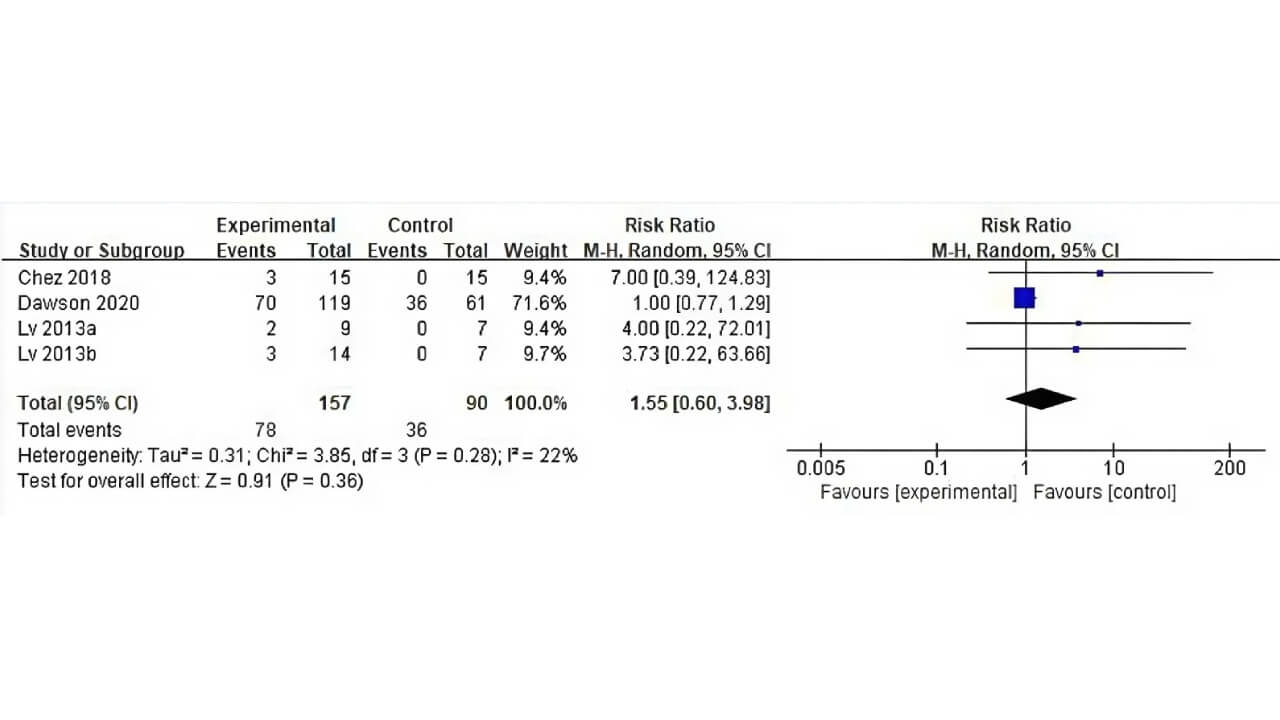
PMCID: PMC9114801 [8]
В отличие от многих фармакотерапевтических методов, лечение аутизма с помощью стволовых клеток обычно не сопровождается типичными для антипсихотических препаратов побочными эффектами, такими как значительное увеличение массы тела, вялость или двигательные расстройства. Это преимущество имеет особо важное значение для растущих детей, на развитие которых побочные эффекты могут иметь негативное воздействие.
Обзор методов лечения
| Вид терапии | Симптомы, на устранение или облегчение которых направлена терапия | Механизм действия | Продолжительность курса терапии | Побочные действия |
|---|---|---|---|---|
| Поведенческая терапия [7] | Социальные и коммуникативные навыки, повторяющееся поведенческие реакции | Структурированное обучение, улучшение поведенческих паттернов | Терапия проводится годами, непрерывно | Минимальны, поведенческое сопротивление |
| Логопедическая терапия | Коммуникативные навыки, развитие речи | Прямое обучение, практика | Терапия проводится годами, непрерывно | Минимальные |
| Эрготерапия | Сенсорные нарушения, двигательные навыки и повседневная деятельность | Сенсорная интеграция, развитие навыков | Терапия проводится годами, непрерывно | Минимальные |
| Фармакотерапия [6] | Агрессия, гиперактивность, тревожность | Нейротрансмиттерная модуляция | Длительный курс лечения | Увеличение массы тела, вялость, двигательные нарушения |
| Терапия стволовыми клетками | Основные симптомы аутизма, нейровоспаление | Клеточная регенерация, иммуномодуляция | Всего 1-2 курса терапии | Легкие и временные побочные эффекты, часто лишь в месте выполнения инъекции |
*Данные Booking Health
Представленная выше сравнительная таблица наглядно демонстрирует уникальность терапии стволовыми клетками: в отличие от традиционных методов, преимущественно ориентированных на купирование симптомов и развитие отдельных навыков, она направлена на воздействие на возможные биологические механизмы расстройства. Таким образом, сочетание стволовой терапии с классическими подходами к лечению аутизма позволяет обеспечить ребенку более комплексную и всестороннюю помощь.
Никогда нельзя терять надежду: реальные истории реальных семей
История Синди Джонсон и её шестилетнего сына ярко иллюстрирует не только трудности, с которыми сталкиваются семьи детей с аутизмом, но и ту надежду, которую могут дать современные инновационные методы лечения. В возрасте 4 лет мальчику диагностировали аутизм. Синди и ее муж приложили все возможные усилия, чтобы помочь сыну: они пробовали физиотерапию, прием диетических добавок, поведенческую терапию, работали с профильными педагогами. Однако, несмотря на их самоотверженные усилия, удавалось достигнуть лишь кратковременного улучшения состояния сына, после чего опять наступал регресс.
Поворотный момент наступил, когда они узнали о враче в Германии, который специализируется на проведении лучшего в мире лечения аутизма стволовыми клетками. В итоге Синди с мужем воспользовались услугами оператора медицинского туризма Booking Health, чтобы организовать терапию для сына в Германии.
Результаты лечения превзошли все ожидания. «Одним из самых позитивных аспектов этой терапии стало то, что она не требует специальной подготовки», – делится Синди. «Нет никаких сложных предписаний или длительных предварительных процедур – есть просто возможность практически сразу приступить к лечению». Не менее значимым стало и то, что по завершении курса терапии не потребовалось никаких ограничений, что позволило ее сыну сразу же вернуться к привычному образу жизни.
Результаты лечения оказались по-настоящему впечатляющими. Уже через несколько месяцев Синди начала замечать значительные положительные изменения в поведении сына: заметно улучшилась концентрация внимания, он стал с удовольствием играть на улице с другими детьми, а также начал посещать занятия в обычном школьном классе, при этом у него улучшились математические способности. Синди вспоминает этот опыт с глубокой благодарностью: «Я просто счастлива, результаты превзошли все ожидания».
Компания Booking Health оказала мне всестороннюю поддержку в организации лечения в Германии, включая помощь с оформлением виз, услуги переводчика и координацию терапии. «Благодаря Booking Health я получила неоценимую помощь и не осталась одна с ребенком в чужой стране», – вспоминает она.
Назначенная моему сыну схема лечения предполагает проведение курса терапии стволовыми клетками всего один раз в год, благодаря чему его привычный уклад жизни практически никак не нарушается. Послание Синди другим семьям предельно простое и ясное: «Я хочу посоветовать родителям детей с таким же диагнозом, как у моего сына: не теряйте драгоценное время на малоэффективные методы. Обратите внимание на терапию стволовыми клетками – она изменила нашу жизнь. Теперь мой сын счастлив. Мы все счастливы. И у нас наконец-то появилось светлое будущее».
Синди Джонсон о терапии стволовыми клетками в Германии и о том, как она изменила жизнь ее сына
Перспективы терапии стволовыми клетками – светлое будущее для детей с аутизмом
Лечение аутизма стволовыми клетками олицетворяет собой смену парадигмы, ведь в отличие от традиционного симптоматического лечения, направленного в основном на купирование симптомов, этот инновационный подход воздействует на фундаментальные нейробиологические механизмы, лежащие в основе расстройства. Сейчас появляется все больше клинических данных, подтверждающих эффективность терапии, что в комплексе с реальным опытом самих пациентов является основанием полагать, что этот инновационный подход дает реальную надежду на улучшение качества жизни детей с аутизмом и их семей.
Текущие исследования демонстрируют существенные клинические преимущества терапии дендритными клетками при приемлемом профиле безопасности метода. В ходе систематического обзора и метаанализа [1] были выявлены значимые положительные изменения в основных симптомах аутизма, что подтверждают стандартизированные инструменты оценки терапевтических результатов. Эти улучшения отражают реальные сдвиги в повседневном жизни детей.
Преимущества терапии стволовыми клетками:
- Устранение лежащих в основе развития аутизма механизмов – терапия стволовыми клетками воздействует на основные нейробиологические причины развития нейропатологии, а не просто на симптомы заболевания
- Эффект широкого действия – лечение способствует положительным изменениям в различных сферах жизни и функционирования ребенка
- Благоприятный профиль безопасности – минимальное количество серьезных побочных эффектов в рамках клинических исследований
- Амбулаторная процедура – терапия минимально влияет на привычный уклад жизни
- Потенциал сочетания с другими методами – терапия стволовыми клетками может применяться в качестве дополнения к стандартным методам лечения
При всех позитивных сторонах лечения аутизма стволовыми клетками также следует принимать во внимание реальные возможности этой методики, поскольку она способна лишь значительно улучшить качество жизни ребенка с этим заболеванием, но не обеспечить его полное излечение. Терапия стволовыми клетками направлена на то, чтобы дать возможность детям лучше взаимодействовать с окружающей средой, осваивать новые навыки и более полноценно участвовать в жизни семьи и общества.
Поездка на лечение за границу с Booking Health
Принятие сложных решений касательно лечения при уходе за ребенком с аутизмом – это весьма сложная задача для родителей. Многие семьи испытывают чувство отчаяния после многочисленных безуспешных попыток лечения и не могут разобраться в противоречивых врачебных заключениях. Ввиду этого в большинстве случаев они делают выбор в пользу стандартизированных протоколов лечения, а не инновационной терапии, которая потенциально способна обеспечить лучшие результаты.
Задача Booking Health – предоставить семьям доступ к передовым методам лечения аутизма с помощью стволовых клеток в ведущих медицинских центрах. Обладая более чем 12-летним опытом работы в сфере медицинского туризма, специалисты компании разрабатывают персонализированные программы лечения с учетом особых потребностей каждого ребенка.
Мы предлагаем комплексный спектр услуг:
- Анализ медицинских заключений и разработку индивидуальной программы лечения
- Подбор клиники с учетом состояния вашего ребенка
- Подготовка медицинской документации и координация работы клиники
- Поддержка на месте, включая услуги персональных координаторов и переводчиков
- Круглосуточная поддержка на протяжении всего курса лечения ребенка за границей
- Прозрачные цены без скрытых платежей
- Координация последующего наблюдения после возвращения домой по завершении медицинской программы
Компания предоставляет семьям профессиональное сопровождение на каждом этапе терапии. От первичной консультации до последующего наблюдения после лечения – опытные медицинские координаторы прилагают максимум усилий, чтобы родители могли полностью сосредоточиться на здоровье своего ребенка без лишнего стресса и неопределенности, при этом обеспечивая все условия для достижения наилучших результатов лечения.
Свяжитесь с медицинскими консультантами Booking Health, чтобы узнать больше о персонализированной терапии стволовыми клетками при аутизме в ведущих специализированных клиниках. Сотрудники компании обладают огромным опытом в сфере своей компетенции, что способствует обеспечению наилучших результатов лечения для вашего ребенка даже в самых сложных клинических случаях.
Современное лечение стволовыми клетками: опыт пациентов Booking Health
Частые вопросы родителей
Отправить запрос на лечениеТерапия стволовыми клетками предполагает забор этих клеток из жировой ткани или крови ребенка с их последующей обработкой в лабораторных условиях и внутривенным введением маленькому пациенту. Целью такого лечения является восстановление поврежденных участков головного мозга и нормализация иммунной дисфункции при аутизме.
Исследования демонстрируют весьма многообещающие результаты такого лечения. Согласно данным систематического обзора, у детей, получавших терапию стволовыми клетками, показатели тяжести аутизма были значительно ниже, чем у детей из контрольных групп, при этом наблюдались значимые клинические улучшения в концентрации внимания, социальном взаимодействии, поведении и коммуникативных навыках.
Существует ли доказательная база, свидетельствующая об эффективности лечения аутизма стволовыми клетками?
Согласно результатам клинических испытаний, при таком лечении у детей наблюдается улучшение зрительного контакта, концентрации внимания, коммуникативных навыков, эмоциональной экспрессии и социального взаимодействия. У детей может развиться речь, улучшиться координация движений и способность выполнять целенаправленные действия.
В ходе лечения используются собственные стволовые клетки пациента, которые получают из костного мозга, жировой ткани или периферической крови. Оптимальным видом стволовых клеток для лечения аутизма у детей являются мезенхимальные стволовые клетки, полученные из жировой ткани, благодаря легкой процедуре забора и их высокой концентрации в этой ткани.
По результатам исследований, лечение безопасно при условии проведения процедуры в соответствующих медицинских учреждениях. Перед началом терапии каждый ребенок проходит комплексное медицинское обследование. У некоторых маленьких пациентов в первые две недели после терапии стволовыми клетками может возникнуть короткий период адаптации.
Как правило, такая терапия вызывает лишь легкие и временные побочные эффекты, включая реакции в месте выполнения инъекции, незначительные повышения температуры тела, временную слабость, легкую головную боль и кратковременные расстройства пищеварения. В ходе исследований не было выявлено существенной разницы в профиле побочных действий по сравнению с контрольными группами.
Стоимость лечения аутизма стволовыми клетками в Германии составляет около €22 500. Окончательная стоимость терапии определяется в зависимости от необходимости проведения данного вида терапии в комплексе с другими лечебными мероприятиями, индивидуальных потребностей пациента и продолжительности курса лечения.
Такое лечение доступно в развитых странах, включая Германию, США и Китай. В Германии терапия стволовыми клетками проводится в таких медучреждениях, как Клиника расширенной биологической медицины Франкфурт-на-Майне.
FDA пока не одобрило терапию стволовыми клетками для лечения аутизма, но этот метод лечения уже предлагается в клиниках развитых стран, включая Германию и США. Текущие исследования демонстрируют многообещающие клинические результаты и приемлемый профиль безопасности.
Какие результаты демонстрируют клинические испытания, посвященные оценке эффективности терапии стволовыми клетками при аутизме?
По данным клинических испытаний, терапия стволовыми клетками обеспечивает положительные результаты, включая улучшение концентрации внимания, коммуникативных и социальных навыков, снижение степени тяжести аутизма. Многочисленные исследования демонстрируют весьма измеримые преимущества такого лечения, хотя ученые отмечают необходимость получения данных наблюдения в более долгосрочной перспективе.
Результаты лечения могут сохраняться в течение нескольких лет – в зависимости от индивидуальных особенностей маленького пациента и проводимой поддерживающей терапии. Первые наиболее заметные улучшения обычно появляются уже через месяц после лечения, а положительная динамика продолжается и дальше – на протяжении 4-6 месяцев после завершения курса терапии стволовыми клетками.
Терапия стволовыми клетками – это не куративный (излечивающий) метод лечения аутизма, а терапия, направленная на значительное улучшение качества жизни ребенка. Целью проведения такого лечения является улучшение способности ребенка взаимодействовать с окружающим миром, осваивать новые навыки и принимать более полноценное участие в повседневной жизни.
В ходе систематического обзора было установлено значительное улучшение показателей тяжести аутизма при проведении различных исследований. Однако эффективность лечения все же различается и зависит от таких факторов, как возраст, степень тяжести аутизма и общее состояние ребенка.
Выбирайте лечение за рубежом и Вы, несомненно, получите отличный результат!
Авторы:
Статья составлена под редакцией экспертов в области медицины, врачей-специалистов доктора Надежды Иванисовой и доктора Богдана Михальнюка. Для лечения состояний, о которых идет речь в статье, необходимо обратиться к врачу; информация в статье не предназначена для самолечения!
С редакционной политикой, которая отражает наше стремление к точности и прозрачности, можно ознакомиться здесь. Перейдите по ссылке, чтобы ознакомиться с нашими правилами.
Источники:
[1] Frontiers in Pediatrics. Efficacy and Safety of Stem Cell Therapy in Children With Autism Spectrum Disorders: A Systematic Review and Meta-Analysis. https://pmc.ncbi.nlm.nih.gov/articles/PMC9114801/
[2] PubMed Central. The Autism Spectrum Disorders Stem Cell Resource at Children’s Hospital of Orange County: Implications for Disease Modeling and Drug Discovery. https://pmc.ncbi.nlm.nih.gov/articles/PMC4214842/
[3] PubMed Central. Stem Cell Therapies for Cerebral Palsy and Autism Spectrum Disorder - A Systematic Review. https://pmc.ncbi.nlm.nih.gov/articles/PMC8699362/
[4] National Institute of Mental Health. Autism Spectrum Disorder. https://www.nimh.nih.gov/health/topics/autism-spectrum-disorders-asd
[5] U.S. Centers for Disease Control and Prevention. Signs and Symptoms of Autism Spectrum Disorder. https://www.cdc.gov/autism/signs-symptoms/index.html
[6] BMC Medicine. Pharmacological treatment in autism: a proposal for guidelines on common co-occurring psychiatric symptoms. https://bmcmedicine.biomedcentral.com/articles/10.1186/s12916-024-03814-0
[7] National Institute of Child Health and Human Development. Behavioral Management Therapy for Autism. http://www.nichd.nih.gov/health/topics/autism/conditioninfo/treatments/behavioral-management
[8] Efficacy and Safety of Stem Cell Therapy in Children With Autism Spectrum Disorders: A Systematic Review and Meta-Analysis. PMCID: PMC9114801 PMID:35601435
Читайте:
Лечение стволовыми клетками в клиниках Германии
Меню статьи:
- Информация об аутизме, которую должен знать каждый родитель
- Простое руководство по терапии стволовыми клетками для семей
- Как терапия стволовыми клетками может помочь ребенку с аутизмом
- Никогда нельзя терять надежду: реальные истории реальных семей
- Перспективы терапии стволовыми клетками – светлое будущее для детей с аутизмом
- Поездка на лечение за границу с Booking Health
- Частые вопросы родителей
Не знаете, с чего начать?
Свяжитесь с Booking Health
